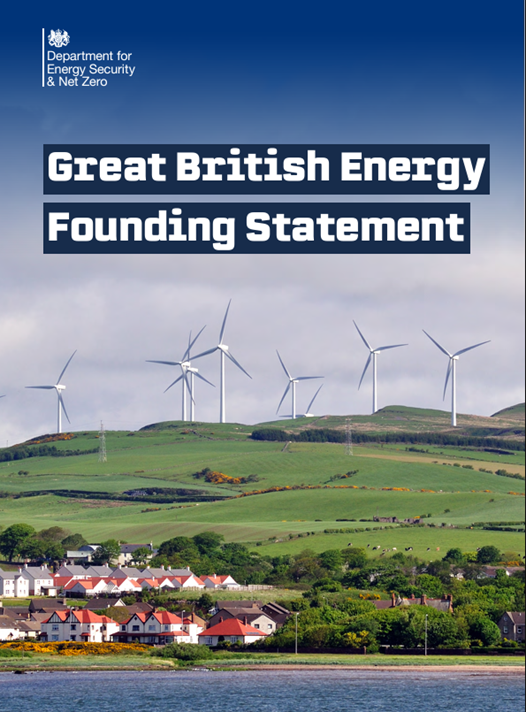A Historic Move Towards Energy Independence: GB Energy and the Crown Estate Partnership
29th Jul 2024


The announcement this week by the government about the creation of GB Energy marks a significant development in the UK’s energy sector. This new publicly-owned energy company aims to drive the UK’s transition towards renewable energy, focusing particularly on offshore wind farms.
In partnership with the Crown Estate, which owns the seabed up to 12 nautical miles from the coast, the UK plans to expand its offshore wind capacity. This initiative will help the country reduce its reliance on fossil fuels, particularly oil and gas from the North Sea. The move is part of a broader strategy to make the UK more energy-independent and to support the government’s environmental goals.
The government has committed £8.3 billion to GB Energy and is aiming to attract an additional £60 billion in private investment. Juergen Maier, the former CEO of Siemens UK, has been appointed as the chair of GB Energy. Maier’s extensive experience in the industry is expected to play a crucial role in steering the company towards its goals.
One of the major promises of this initiative is job creation, with an estimated 650,000 new jobs expected to emerge, particularly in areas that have historically been industrial hubs. This aligns with the government’s vision of a “green re-industrialisation” of regions like Runcorn, which were once strongholds of the UK’s industrial sector.
The location for GB Energy’s headquarters has yet to be decided, but options include Scottish cities like Aberdeen, Glasgow, and Inverness. This decision reflects the strategic importance of these areas in the UK’s energy landscape, especially as they transition from traditional oil and gas industries to renewable energy sources.
Sir Keir Starmer, emphasised the importance of this move for Scotland, suggesting that it could position the country as a leader in the global clean energy revolution. However, he also acknowledged that while the long-term goal is to reduce energy costs, these benefits will not be immediate.
This initiative comes at a time when the UK is grappling with the challenges of connecting offshore wind energy to the national grid. The debate continues over the use of overhead lines versus underground cables, with considerations of cost, environmental impact, and community opposition playing significant roles. I have quite a few of these projects ongoing at the moment.
In conclusion, the launch of GB Energy represents a bold step towards a greener future for the UK. It not only aims to increase the country’s renewable energy capacity but also seeks to support economic growth and job creation in regions transitioning away from fossil fuels. This development will be crucial as the UK strives to meet its environmental targets and secure a more sustainable energy future. More information available here
https://www.gov.uk/government/publications/introducing-great-british-energy
I would like to thank a work experience student from Altrincham Grammar School for Boys Sixth Form for his help with this blog. His contribution was much appreciated.
